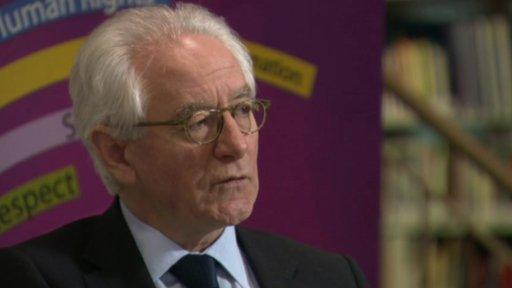Former PMs back NI schools campaign
- Published

Bertie Ahern and Tony Blair are supporting the campaign on the 20th anniversary of the Good Friday Agreement
Tony Blair and Bertie Ahern are to back a campaign aimed at tackling the long-running issue of educational underachievement in Northern Ireland.
The two men will make the call at an event to mark the 20th anniversary of the Good Friday Agreement in April.
The issue of underachievement in disadvantaged areas, particularly among Protestant boys, has long been a political talking point.
There have been numerous reports on the issue in recent years.
Mr Blair was the prime minister and Mr Ahern was the taoiseach (Irish prime minister) when the Good Friday Agreement was signed in 1998.
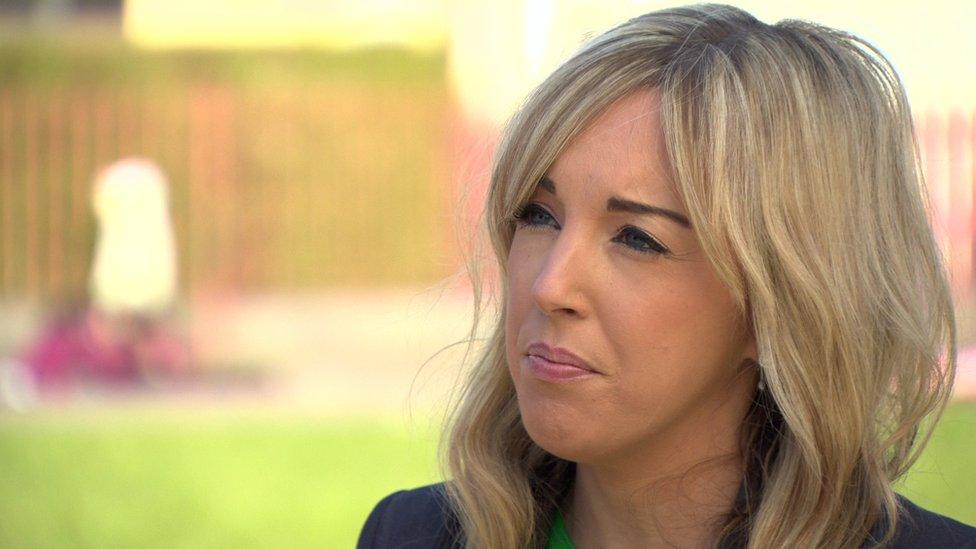
Caroline McNeill, from the Goliath Trust, said the legacy of the past was seen in Northern Ireland's schools
A new charity, the Goliath Trust, has been established to deal with the issue and the group hopes to pass funds onto 12 primary schools in the Belfast area.
"The issue of educational underachievement as persisted for many years," said Caroline McNeill, from the charity.
"It was hoped in 1998, with the Good Friday Agreement, that perhaps a new dawn was approaching and the issue around education would be addressed.
"The reality is for many people in communities right across Northern Ireland, the legacy of the past is very real and we are seeing that in our schools in terms of children's mental health."
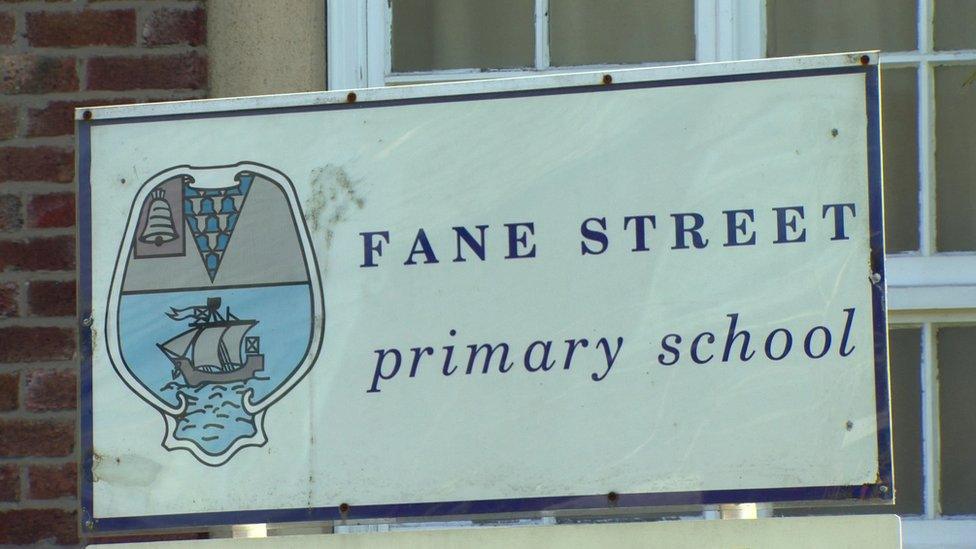
Fane Street Primary School is considered one of Northern Ireland's most diverse schools
Fane Street Primary School, in south Belfast, is one school that is looking for help.
Probably one of Northern Ireland's most diverse schools, it was was once nicknamed the 'Africa School' because of the number of refugee children who attend.
Principal Hilary Cunningham told the BBC programme The View: "One of the main things we need to provide is pastoral support for our children.
"We have a lot of children who have been in refugee camps for maybe two or three years.
"We have parents who are suffering from the legacy of the Troubles, maybe with mental health issues, and we really need to be providing that support for the children to ensure that they are healthy mentally, physically, as well as academically."
Across the city in west Belfast, at St Paul's Primary School, it is a similar story.
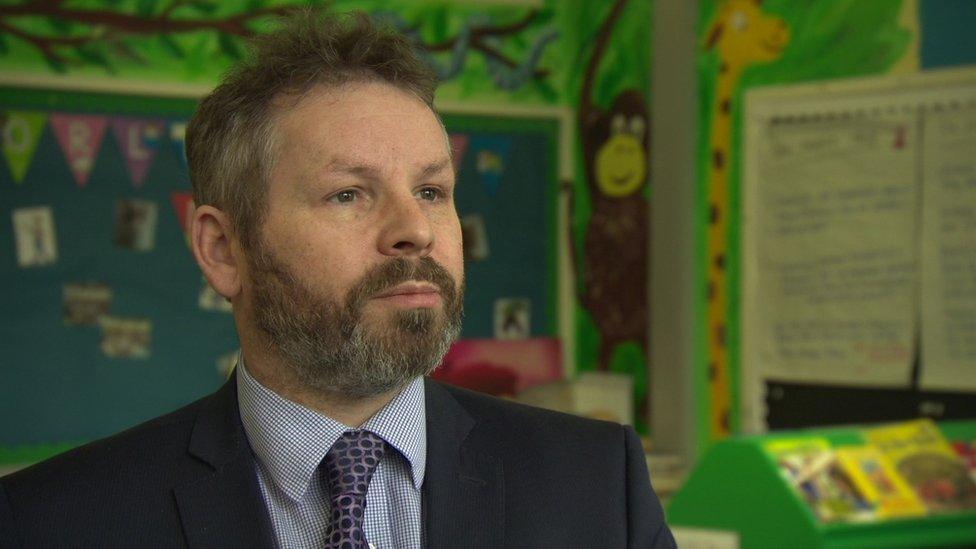
Sean McNamee said the legacy of the Troubles was a huge challenge for schools such as his
Sean McNamee, the principal, said his staff are working hard to improve achievement levels and the learning environment.
"Most of our children who are newcomers are coming from traumatic backgrounds, so they are refugees or asylum seekers typically.
"We also have trauma. We're in the heart of Beechmount here, so Lower Falls - the legacy of the Troubles is having an impact here and is also still impacting within Belfast and within our community."
It is not just at primary level where underachievement is prevalent.
Revealing figures
Figures for the secondary sector show that of those entitled to free school meals, 53% of Catholic girls left school with at least five GCSEs.
For Catholic boys, it was 43% while for Protestant girls it was 42%.
The figure for Protestant boys was 34%.
Beyond GCSE level, there is also a divide.
Recently, the Belfast Telegraph published A-level league tables that showed that the top schools were all Catholic grammar schools.
Academic researcher Dr Paul Nolan, who has studied the issue of underachievement, said last week's figures were revealing.
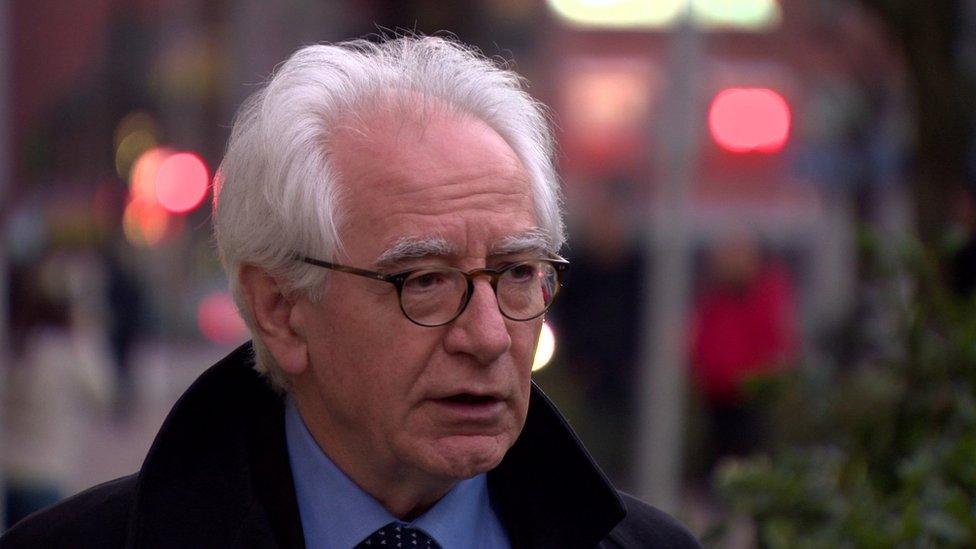
Dr Paul Nolan said a cultural change was needed to reverse trends in academic achievement
He told The View: "Now, that is quite a remarkable thing in itself but bear in mind that not only are Catholic pupils doing well in comparison to Protestant pupils, Catholic pupils in Northern Ireland do incredibly well compared to any other social group in the United Kingdom - they are up there with the very highest."
The gap between Catholic and Protestant students has prompted numerous reports in recent years, including one by lecturer and DUP politician Peter Martin.
So why does he think Protestant students lag behind their Catholic counterparts?
"There are a range of things," he said.
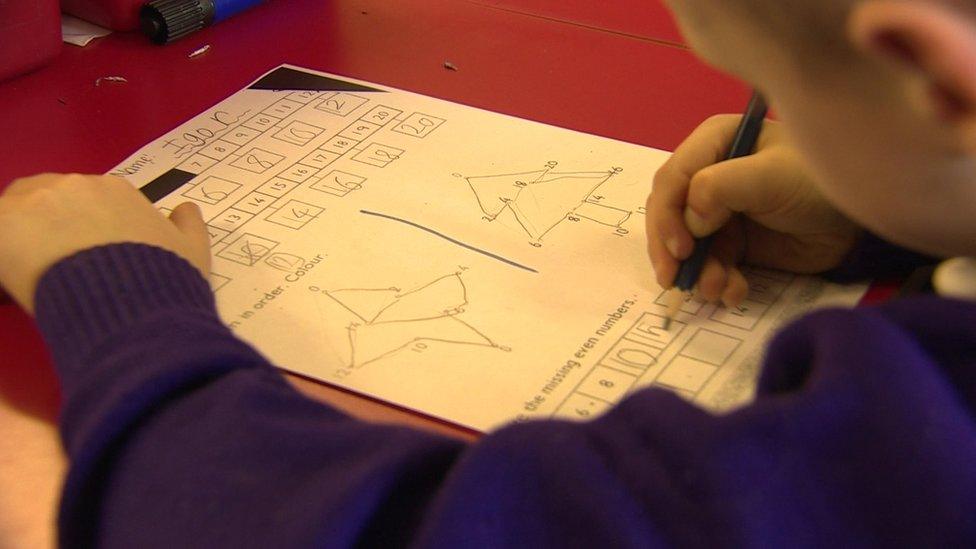
The problem needs more than just a financial solution
"Some people will say, for example, there is more cohesion around Catholic education.
"This is something that I think we have to work on in the Protestant sector. Equally the figures are improving and have been improving in the last couple of years in terms of those Protestant free school meals boys."
Dr Paul Nolan said the figures on educational attainment in the Protestant community have changed for the better in recent years but he insisted a financial solution is not the only answer in the long term.
"The problem is it can't be addressed simply by an injection of resources," he said.
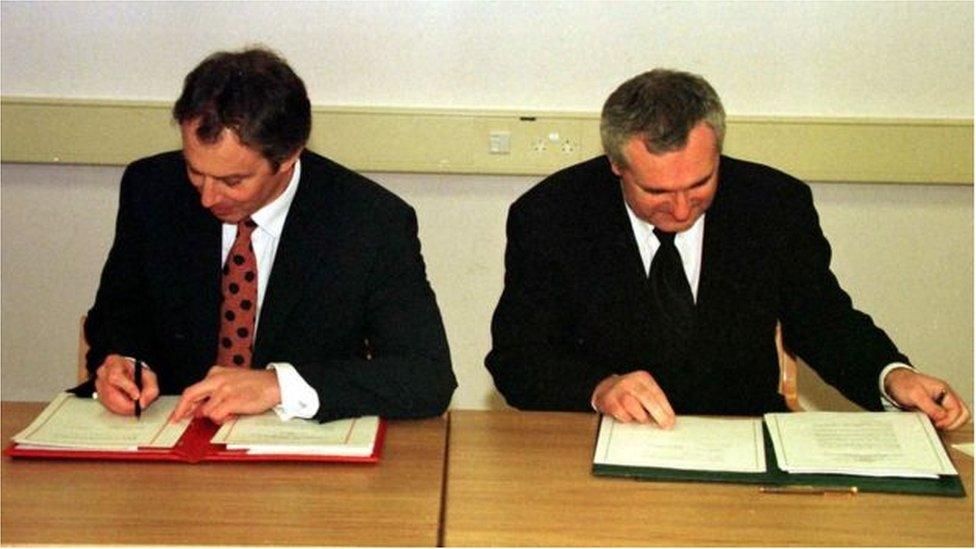
Tony Blair and Bertie Ahern signing the Good Friday Agreement in 1998
"Money won't solve it on its own. This requires a whole cultural change.
"That has to take place at a sort of molecular level, at a neighbourhood level, at a family level, in terms of the social patterns of young people in Protestant areas, particularly Protestant boys."
In April, Senator George Mitchell will be in Belfast to back the new initiative and Bill and Hillary Clinton have also been invited.
- Published6 October 2015
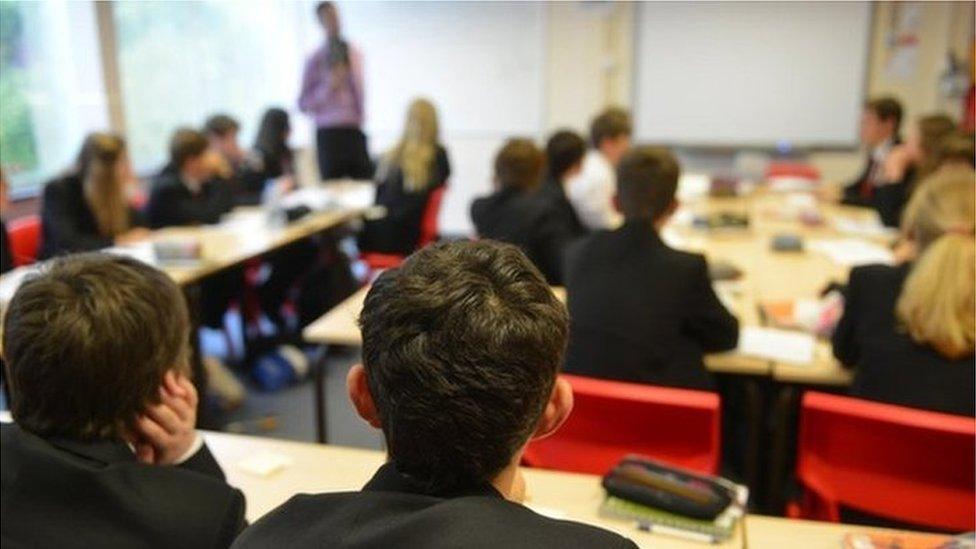
- Published3 April 2014
